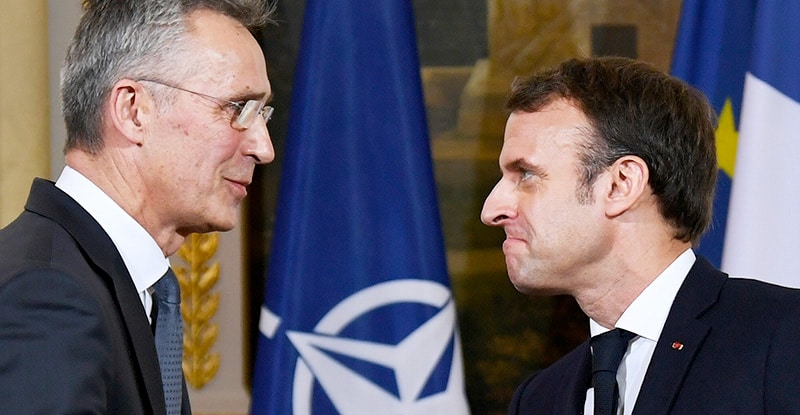Is President Macron right to call NATO “brain-dead”?
By Philippe Maze-Sencier, Managing Director at McLarty Europe

After declaring NATO “brain-dead” has President Macron brought Europe any closer to strategic autonomy ?
On December 3rd and 4th, NATO leaders gathered in London for the 70th anniversary of the Alliance. While the world was expecting a rather tense meeting following the controversial “brain dead” interview of President Macron with The Economist, it ended with the issuing of a common final communiqué reiterating the collective defense commitment enshrined in Article 5 of the Charter. Philippe Maze-Sencier, Managing Director at McLarty Europe, shares his views on what the French President has achieved so far – and what he hasn’t.
Against all odds, NATO’s 70th birthday meeting in London has come and gone and NATO is still around, unscathed. Not only did NATO leaders avoid the organization running off-road, but even Emmanuel Macron, who unleashed a storm in a stunning interview to The Economist magazine last month by calling NATO “brain-dead”, could claim a victory and point to the meeting’s decision to conduct a strategic review of the Alliance’s purpose. It is hard to disagree with President Macron’s assertion that the world has dramatically changed, potentially undermining the credibility, legitimacy and raison d’être of NATO. It is equally indisputable that Europe needs to do more to defend itself and, in the words of the French President, reclaim “sovereignty” over its security by investing more in defense and stop freeloading off the United States. However, whether his questioning the solidity of NATO’s Article 5 guarantee or his apparent eagerness to strike a new bargain with Russia over the heads of our Central, Eastern and Northern European neighbors will help him achieve this is highly debatable. A rather poor choice of words, a lack of preparatory discussions with his European partners and a perceived Gallic contempt for those who may disagree have clouded Emmanuel Macron’s all too necessary wake-up call for a more militarily responsible and capable Europe. Can the French President succeed in forging a European consensus on defense or has he on the contrary ensured lasting distrust for any Paris-led initiative, durably affecting efforts to see a more strategically autonomous and capable Europe emerge?
